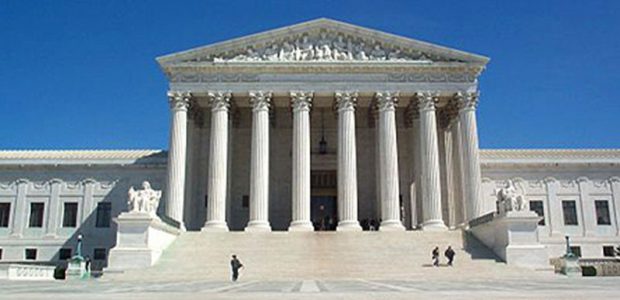


This morning the Supreme Court ruled against both Texas and Louisiana in their lawsuit against the Biden administration over deportation policies.
The Biden administration set forth in 2021 that they would only ICE to deport serious and violent illegal immigrant offenders, leaving all other illegals protected from deportation.
Texas and Louisiana sued but this morning the Supreme Court said they don’t have standing to make this challenge:
THE HILL – Texas and Louisiana do not have authority to challenge the Biden administration’s guidelines for when to deport migrants from the country, the Supreme Court ruled Thursday, handing a win to President Biden on immigration policy.
In an 8-1 decision, the court determined the two states lacked the standing to sue over one of the Department of Homeland Security’s (DHS) earliest directives.
“The States essentially want the Federal Judiciary to order the Executive Branch to alter its arrest policy so as to make more arrests,” Justice Brett Kavanaugh wrote for the majority.
“But this Court has long held ‘that a citizen lacks standing to contest the policies of the prosecuting authority when he himself is neither prosecuted nor threatened with prosecution.’”
The ruling wasn’t just about standing. Kavanaugh, who wrote for the majority, made clear that granting a challenge like this would have far reaching consequences that could affect other similarly worded laws:
In their lawsuit, Texas and Louisiana claimed the Biden administration policy caused direct harm because of increased costs for social services, including health care and education.
The states also accused the administration of failing to enforce immigration laws Congress had enacted designed to “deal with increasing rates of criminal activity” by immigrants.
But Kavanaugh, joined by Chief Justice John Roberts and the court’s three liberal justices, wrote that granting the states’ demands would have far-reaching consequences beyond immigration law.
“If the Court green-lighted this suit, we could anticipate complaints in future years about alleged Executive Branch under-enforcement of any similarly worded laws—whether they be drug laws, gun laws, obstruction of justice laws, or the like,” wrote Kavanaugh.
“We decline to start the Federal Judiciary down that uncharted path.”
Gorsuch wrote a concurring opinion to Kavanaugh’s and he was joined by Clarence Thomas and Amy Coney Barrett. As was said above, Kavanaugh’s opinion was joined by Roberts and the three liberal justices. That accounts for all eight.
So who was the one dissenting opinion? Justice Alito.
